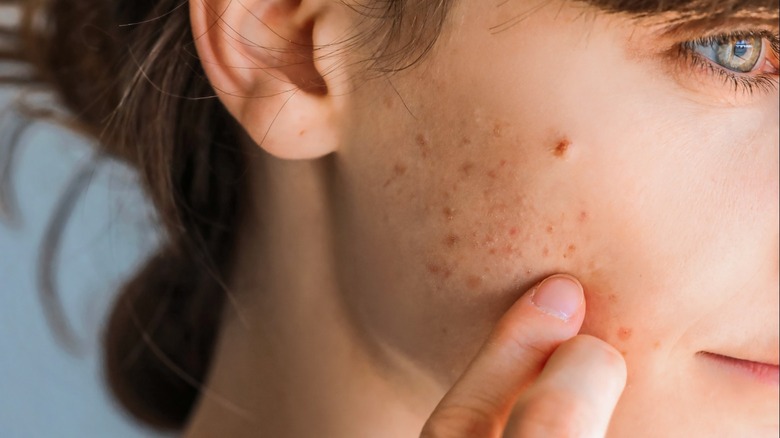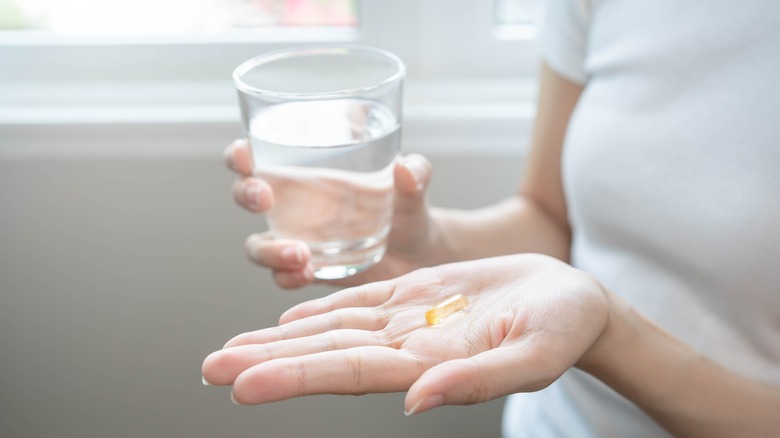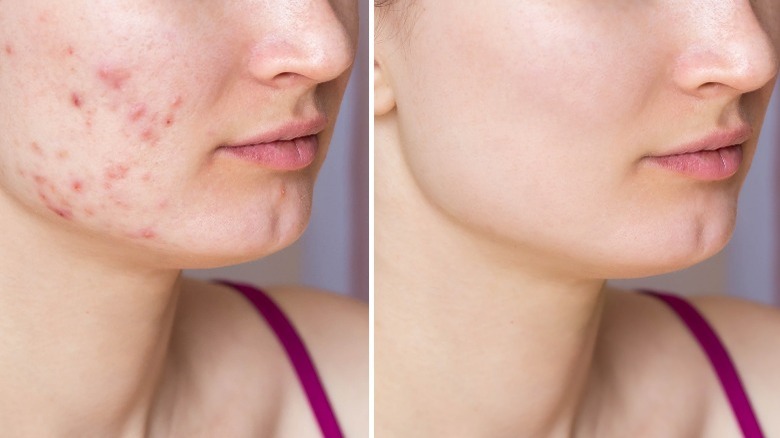Is Spironolactone The Acne Medication For You?
Those who have struggled with acne know can be stubborn to treat. While topicals can provide some relief, prescription medications are another option that could further improve your condition — based on the guidance of your dermatologist and healthcare providers, of course! This is where spironolactone makes its entrance.
The highly-regarded medication falls into one of three main treatment options: antibiotics, hormonal therapy, and isotretinoin, per a 2017 study published in the International Journal of Women's Dermatology. Originally meant to treat high blood pressure and fluid retention, spironolactone has been prescribed to women for acne for decades. Dr. Joshua Zeichner, director of cosmetic and clinical research at The Mount Sinai Hospital, claims it is one of the most often prescribed acne medications (via SingleCare).
You may have heard anecdotes about spironolactone and are curious to see if it's right for you. Here is more information about how the medication works and if it might be a good option to treat your acne.
Spironolactone is hormonal therapy
First, it is important to know that spironolactone falls into the hormonal therapy category and is mainly used to treat hormonal acne. It works like this: your body contains sex hormones called androgens. Androgens bind to androgen receptors, such as oil glands, which then secrete hormones, according to SingleCare. Spironolactone blocks androgens from making that connection, thus reducing and preventing oil production, an excess of which can lead to acne.
Spironolactone is not advised as a treatment option for males because it decreases testosterone levels, per GoodRx, and because males have too many androgens for the medication to block successfully (via Cosmopolitan). However, it can be used as part of gender-affirming hormone therapy for trans women.
For those who use a hormonal IUD as birth control, keep in mind that androgens love progestin, which is synthetic progesterone released by the IUD and could be contributing to your acne (via Healthline). Alternatively, many birth control pills contain a mixture of estrogen and progestin hormones, which can combat acne by reducing testosterone levels.
Who spironolactone works best for
Spironolactone does not clear acne overnight but rather takes several weeks to systematically alter your body's hormones in a meaningful way, per Cosmopolitan. It works best for women who get acne around their periods; have severe acne on several parts of their bodies like the face and back; have not had success with topical treatments or have had relapses after antibiotics; or do not want to take hormonal birth control to treat acne, according to SingleCare. Spironolactone, which the FDA approves to treat high blood pressure and fluid retention, is not a medication most dermatologists want patients to take forever but rather for a few years until acne improves.
One side effect that is oft-noted by those who take spironolactone is frequent urination, as the drug is a diuretic. (Remember to stay hydrated, whether you're on spironolactone or not!) As always, it is best to chat with your doctor to figure out what your acne could be telling you about your health and what treatment options are best for you.


